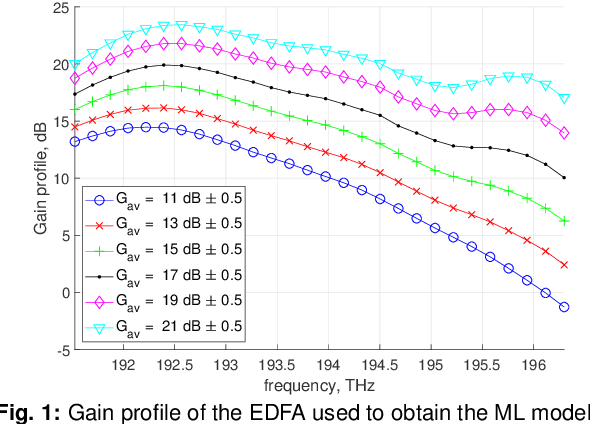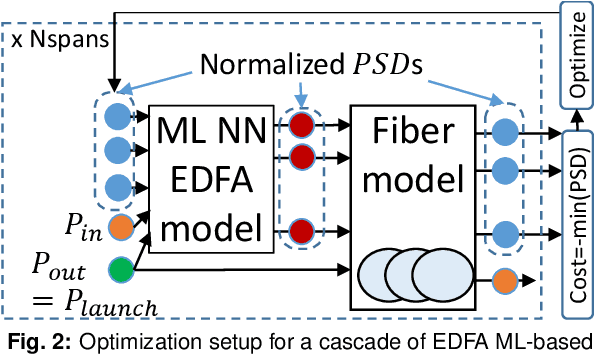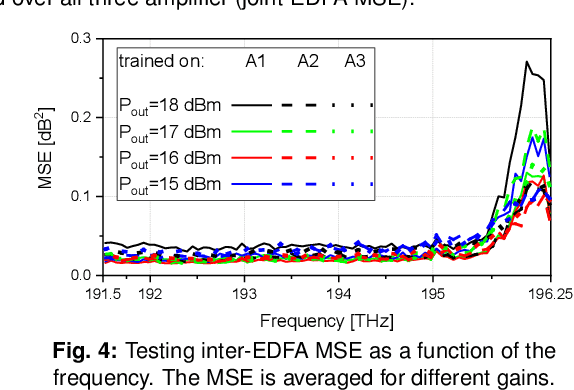Uiara Celine de Moura
Flexible Raman Amplifier Optimization Based on Machine Learning-aided Physical Stimulated Raman Scattering Model
Jun 13, 2022



Abstract:The problem of Raman amplifier optimization is studied. A differentiable interpolation function is obtained for the Raman gain coefficient using machine learning (ML), which allows for the gradient descent optimization of forward-propagating Raman pumps. Both the frequency and power of an arbitrary number of pumps in a forward pumping configuration are then optimized for an arbitrary data channel load and span length. The forward propagation model is combined with an experimentally-trained ML model of a backward-pumping Raman amplifier to jointly optimize the frequency and power of the forward amplifier's pumps and the powers of the backward amplifier's pumps. The joint forward and backward amplifier optimization is demonstrated for an unrepeatered transmission of 250 km. A gain flatness of $<$ 1~dB over 4 THz is achieved. The optimized amplifiers are validated using a numerical simulator.
Comparison of Models for Training Optical Matrix Multipliers in Neuromorphic PICs
Nov 23, 2021


Abstract:We experimentally compare simple physics-based vs. data-driven neural-network-based models for offline training of programmable photonic chips using Mach-Zehnder interferometer meshes. The neural-network model outperforms physics-based models for a chip with thermal crosstalk, yielding increased testing accuracy.
Power Evolution Prediction and Optimization in a Multi-span System Based on Component-wise System Modeling
Sep 11, 2020


Abstract:Cascades of a machine learning-based EDFA gain model trained on a single physical device and a fully differentiable stimulated Raman scattering fiber model are used to predict and optimize the power profile at the output of an experimental multi-span fully-loaded C-band optical communication system.
Machine learning-based EDFA Gain Model Generalizable to Multiple Physical Devices
Sep 11, 2020



Abstract:We report a neural-network based erbium-doped fiber amplifier (EDFA) gain model built from experimental measurements. The model shows low gain-prediction error for both the same device used for training (MSE $\leq$ 0.04 dB$^2$) and different physical units of the same make (generalization MSE $\leq$ 0.06 dB$^2$).
 Add to Chrome
Add to Chrome Add to Firefox
Add to Firefox Add to Edge
Add to Edge